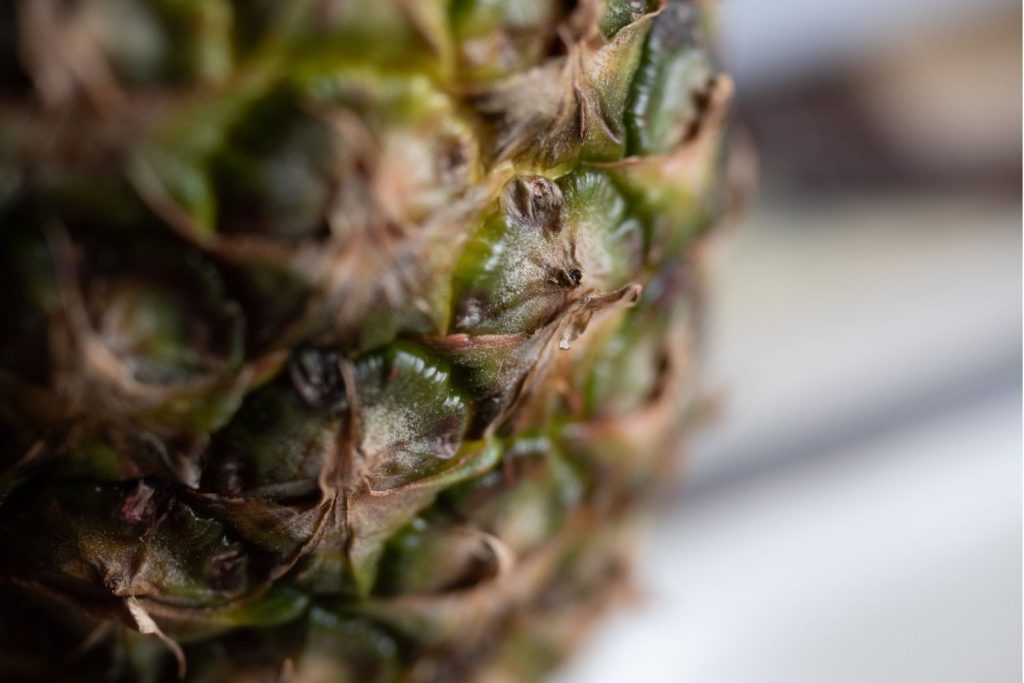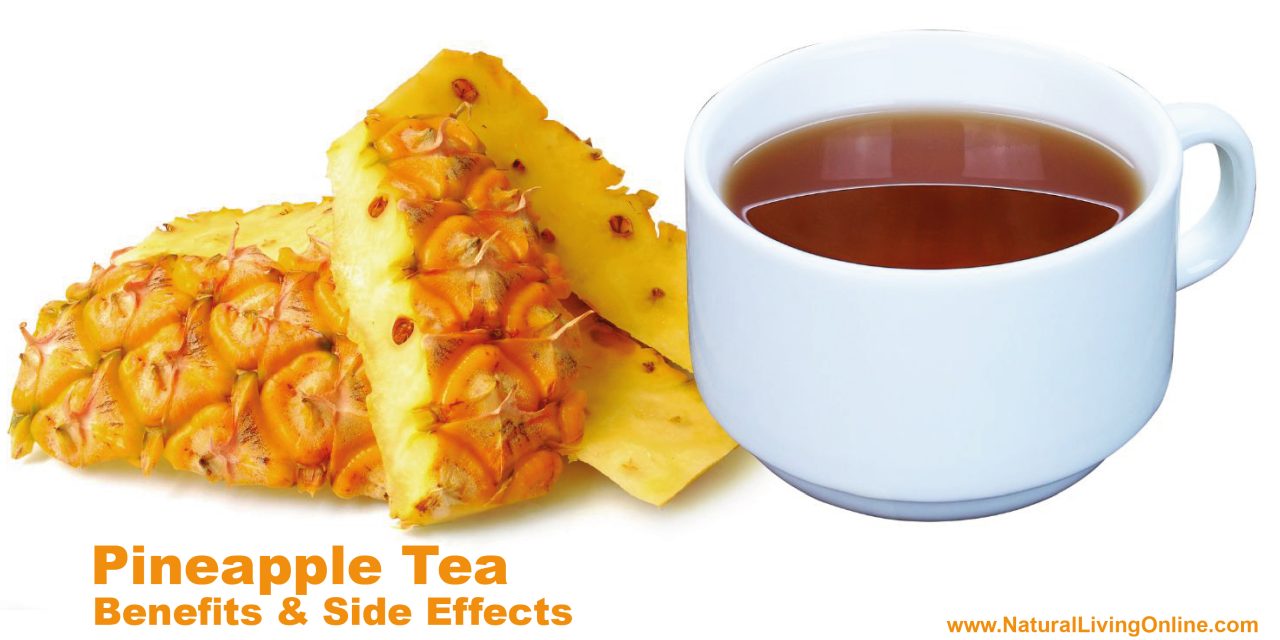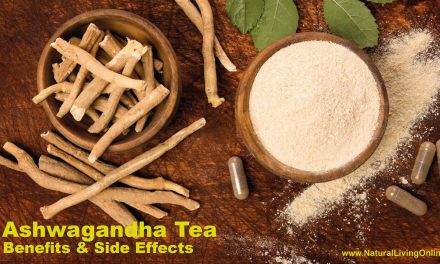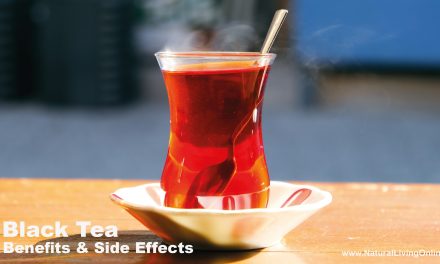Pineapple tea is a delightful and refreshing beverage that offers numerous health benefits. Made from the peel, flesh, and sometimes the crown of the pineapple, this tea is packed with vital nutrients and antioxidants. Drinking pineapple tea can aid in weight loss, improve mood, boost your immune system, and enhance digestion.
Pineapple tea is rich in bromelain, a powerful enzyme that helps reduce inflammation and support the body’s healing processes. This enzyme, along with the tea’s high vitamin C content, can help strengthen your immune system and fight off common illnesses. Additionally, the anti-inflammatory properties of turmeric and ginger often added to the tea make it even more beneficial.
Preparing pineapple tea is simple and sustainable. It often includes boiling pineapple skins with other natural ingredients like ginger, cinnamon, and turmeric. This not only enhances the flavor but also increases the health benefits. For those looking to reduce waste and make the most of their fruit, pineapple tea is an excellent choice.
Key Takeaways
- Pineapple tea is rich in nutrients and antioxidants.
- Drinking this tea can boost the immune system and reduce inflammation.
- It is a sustainable way to use pineapple scraps creatively.
Nutritional Profile of Pineapple Tea

Pineapple tea offers various nutrients essential for good health. It is rich in vitamins and minerals, low in calories, and provides hydration without caffeine.
Vitamin and Mineral Content
Pineapple tea is packed with essential vitamins and minerals. Vitamin C is prominent, helping to boost the immune system. Potassium supports heart health and muscle function.
Aside from Vitamin C and potassium, pineapple tea also contains calcium and iron. Calcium is critical for bone health, while iron is important for oxygen transport in the blood. Though in small amounts, these nutrients collectively contribute to the tea’s overall benefits.
Caloric and Fiber Contribution
Pineapple tea is very low in calories, making it an excellent choice for those watching their weight. A cup typically contains less than 50 calories, depending on added ingredients.
In addition to being low-calorie, pineapple tea includes dietary fiber. Fiber aids digestion and promotes a feeling of fullness, which can be beneficial for weight management. The presence of fiber supports digestive health and helps in reducing inflammation.
Hydration and Caffeine-Free Benefits
Pineapple tea is an effective way to stay hydrated due to its high water content. Hydration is crucial for maintaining bodily functions, such as temperature regulation and nutrient transport.
Unlike traditional teas, pineapple tea is caffeine-free, making it suitable for all ages and those sensitive to caffeine. This attribute allows it to be consumed at any time of the day without affecting sleep patterns.
The combination of hydration, essential nutrients, and lack of caffeine makes pineapple tea an excellent choice for a healthy lifestyle.
Health Enhancing Properties

Pineapple tea offers multiple health-enhancing benefits such as antioxidant capacity, digestive health support, and anti-inflammatory action. These properties contribute to overall wellness by boosting immune function, improving digestion, and reducing inflammation.
Antioxidant Capacity
Pineapple tea is rich in antioxidants like Vitamin C, which help neutralize free radicals. This can protect the body from oxidative stress and cellular damage.
Antioxidants are known to enhance the immune system, making it more effective in warding off illnesses. Bromelain, an enzyme found in pineapple, also shows significant antioxidant activity. Consistent intake may offer some protection against chronic diseases such as heart disease and certain types of cancer.
Digestive Health Support
Pineapple tea aids digestion through its enzyme content, particularly bromelain. Bromelain helps break down proteins into smaller peptides and amino acids, making them easier to digest.
Regular consumption of pineapple tea can boost gut health and prevent digestive discomforts like bloating and constipation. This tea also acts as a natural diuretic, helping to expel excess fluids and toxins from the body, leading to smoother digestion.
Anti-Inflammatory Action
The anti-inflammatory properties of pineapple tea stem from its high bromelain content. This enzyme helps reduce inflammation and swelling in the body, making it beneficial for people with conditions like arthritis.
Regular intake can alleviate symptoms of chronic inflammatory conditions. Moreover, pineapple tea helps in reducing edema and minimizes the formation of inflammatory substances. Its ability to aid the immune system also contributes to reducing overall inflammation in the body.
Therapeutic Applications

Pineapple tea offers numerous therapeutic benefits. It plays a role in disease prevention, aids in weight management, and supports the immune system and chronic health conditions.
Pineapple Tea in Disease Prevention
Pineapple tea possesses properties that may help in preventing various diseases. The antioxidants in pineapple tea fight free radicals, which can reduce the risk of cancer and heart disease. Its anti-inflammatory effects are beneficial for those with arthritis and osteoarthritis, reducing pain and swelling.
Pineapple tea may also aid in managing edema and asthma. These anti-inflammatory properties help in reducing inflammation in the respiratory tract, easing symptoms for asthma sufferers. The flavonoids present may also offer some protection against the onset of chronic diseases by supporting overall cellular health.
Weight Management and Metabolic Benefits
Drinking pineapple tea can be beneficial for weight management and metabolic health. It contains compounds that help boost metabolism, which can assist in weight loss efforts by promoting more effective calorie burning. Consuming this tea may also help reduce appetite, aiding those who seek to control their weight.
Additionally, pineapple tea has diuretic properties, which can help reduce water retention and bloating. This is particularly useful for individuals looking to manage their weight and overall body composition. The natural sweetness of pineapple tea makes it a lower-calorie alternative to sugar-laden beverages, contributing to better weight management.
Effect on Chronic Conditions and Immunity
Pineapple tea has notable benefits for chronic conditions and the immune system. The tea’s immunomodulatory properties can enhance immune function, making the body more resilient against infections and allergies. This can be particularly beneficial during times of increased susceptibility to colds or flu.
For chronic conditions like heart disease, the antioxidants and anti-inflammatory compounds in pineapple tea can support cardiovascular health by reducing oxidative stress and improving blood circulation. It may also help in managing blood pressure and reducing the risk of hypertension. Regular consumption of pineapple tea can be a supportive measure in maintaining long-term health and addressing chronic diseases.
Preparing Pineapple Tea

Preparing pineapple tea involves using parts like the pineapple peel and core, often paired with spices to enhance flavor and health benefits. The process is fairly simple and can be customized for taste or dietary preferences.
Recipes for Homemade Brews
To make pineapple tea, start with the pineapple peel and core. Wash them thoroughly to remove any pesticides or dirt. Place the peels and core in a large pot with enough water to cover them.
Boil on medium-high heat for about an hour, then let it steep for another hour with the heat off. Strain the tea using a fine mesh strainer and store it in a large pitcher. This basic method can be altered by adding ingredients like ginger, turmeric, or lemon juice for additional flavor and health benefits.
Ingredients:
- Pineapple peel and core
- Water
- Optional: Ginger, turmeric, lemon juice, honey
Adding Flavor and Health Boosters
Adding spices and herbs can enhance not just the taste but also the health benefits of pineapple tea. Common ingredients include cinnamon, turmeric, and ginger, which are known for their anti-inflammatory properties.
Honey can be added as a natural sweetener, while mint and sage can provide a refreshing twist. For a detox effect, include lemon juice, which may help in flushing out toxins. These additions make the tea not only flavorful but also a healthier choice.
Suggested Add-ins:
- Cinnamon sticks
- Fresh ginger slices
- Turmeric powder
- Fresh mint or sage leaves
- Lemon juice
- Honey
Tips for Safe Preparation and Consumption
Safety is crucial when making pineapple tea. Always use fresh and clean ingredients to avoid contamination. If you are pregnant, it’s advisable to consult with a healthcare provider before consuming herbal teas, including pineapple tea.
Make sure to store the tea in a refrigerator if not consumed immediately to prevent spoilage. Avoid adding too much sugar or artificial sweeteners, as these can negate the health benefits. Drink the tea in moderation, as excessive consumption may lead to stomach upset.
Safety Tips:
- Use fresh, clean ingredients
- Store in the refrigerator
- Consult healthcare provider if pregnant
- Avoid excessive sweeteners
- Consume in moderation
This method of preparing pineapple tea helps reduce food waste by using parts of the pineapple that are usually discarded.
Sustainable Practices and Ethical Considerations
Sustainable practices are key to making pineapple tea both environmentally friendly and socially responsible. By reusing pineapple parts and ensuring ethical sourcing, we can enjoy this beverage while minimizing its impact.
Utilizing Leftover Pineapple Parts
Using leftover parts of the pineapple, such as the peel, for making tea reduces food waste. Pineapple skin is rich in vitamins A, B, and C, calcium, and potassium. Pineapple peel tea or pineapple skin tea can provide these nutrients.
By using a sharp paring knife, the peel can be separated from the pineapple fruit and boiled to make tea. The skins can also be added to marinades, enhancing flavor while promoting sustainable cooking practices.
Recycling the pineapple parts helps in reducing overall waste and can contribute to a more sustainable lifestyle. Thus, this not only benefits the environment but also offers a nutritious drink without extra cost.
Environmental Impact and Fair Trade
Growing pineapples in tropical regions often involves the use of pesticides. Choosing organic pineapples for tea can limit this impact. Organic farming practices help to keep the environment clean and reduce harmful chemical use.
Fair trade practices ensure that pineapple farmers receive fair wages and work under safe conditions. By supporting fair trade, consumers contribute to social responsibility within the pineapple industry.
Fair trade also promotes sustainable farming methods, including reduced pesticide use. This ensures the protection of ecosystems and aids in maintaining biodiversity. For a more ethical choice, selecting products that carry fair trade certifications ensures that both the environment and workers are respected.
Frequently Asked Questions
What are the health advantages of drinking pineapple tea for weight management?
Pineapple tea may aid in weight management due to its ability to enhance metabolism. This tea can also act as a natural diuretic, helping to reduce bloating and fluid retention. It’s a low-calorie drink that can fit well into a weight loss plan.
How can pineapple tea be beneficial for the skin?
Pineapple tea contains antioxidants like Vitamin C and manganese, which protect the skin from environmental damage. These antioxidants also aid in the production of collagen, improving skin elasticity and firmness. Drinking pineapple tea can thus contribute to healthier, more resilient skin.
Are there any specific benefits of consuming pineapple tea during pregnancy?
Pregnant women may benefit from pineapple tea’s high Vitamin C content, which boosts the immune system. The tea also aids digestion, reducing common pregnancy woes like bloating and constipation. However, make sure to consume it in moderation, and consult a healthcare provider.
What are the potential side effects of drinking pineapple tea?
While pineapple tea is generally safe, excessive consumption can lead to stomach upset due to its acidity. Some people might experience allergic reactions. Drinking in moderation is crucial to avoid these potential side effects.
How does pineapple tea aid in alleviating allergies?
Pineapple tea contains bromelain, a natural enzyme that reduces inflammation and may help alleviate symptoms of allergies. This enzyme can also improve nasal swelling and ease sinus discomfort, making it easier to breathe.
Is it advisable to drink pineapple tea before bedtime?
It’s generally safe to drink pineapple tea before bedtime as it is caffeine-free. Its calming properties might help in reducing anxiety and promoting better sleep. However, its diuretic effect might lead to more frequent trips to the bathroom, which could disrupt sleep.
References:
Applications of bromelain from pineapple waste towards acne
Properties and Therapeutic Application of Bromelain: A Review
This website does not provide medical advice.
All information provided on this website, and on associated social media networks, including but not limited to texts, images, and numbers are for general information purpose only. It is not intended as medical advice and it does not include all possible precautions, side effects, or interactions that may occur. Neither NaturalLivingOnline.com nor its author/founder take responsibility for how you use this information. Statements contained on NaturalLivingOnline.com have not been evaluated by the FDA. You should conduct thorough research via multiple sources and consult your physician or qualified doctor before using any essential oil or herbal remedy. Information on NaturalLivingOnline.com must not be relied upon for medical, legal, financial or other decisions.













